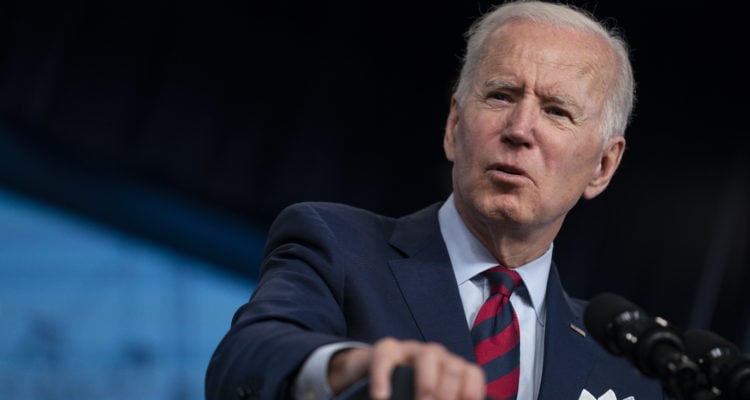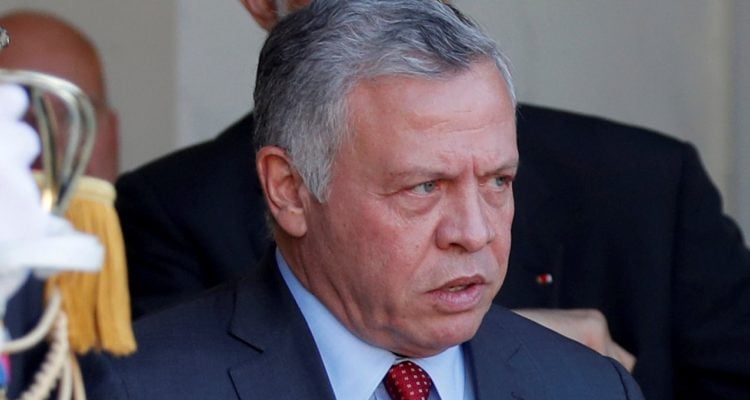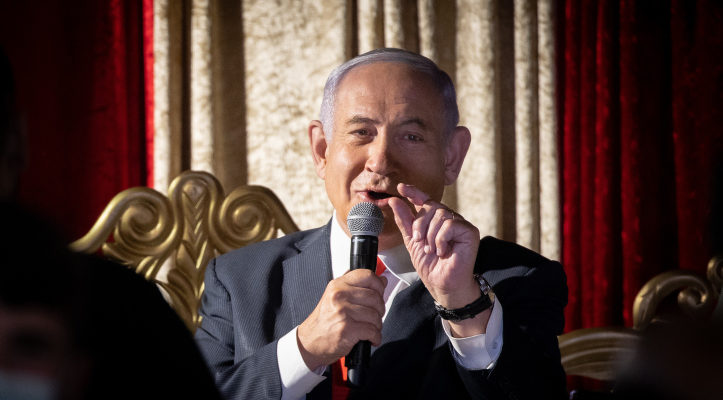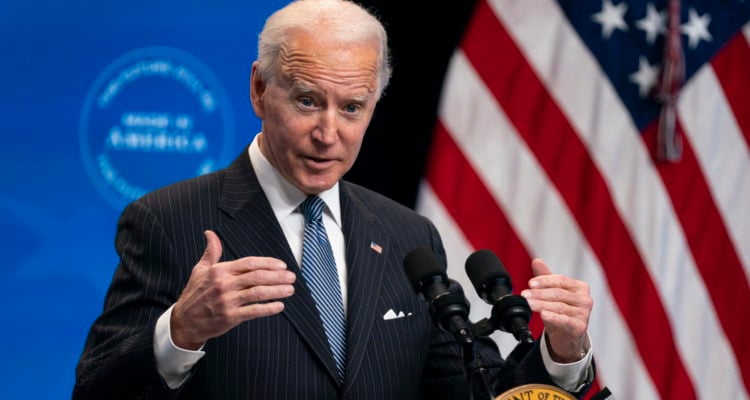ΕΝΗΜΕΡΩΣΗ!
1.
Unto every person there is a name: Holocaust remembered in Israel

Holocaust Remembrance Day is marked by a series of events, the most well-known of which is the air raid siren.
By World Israel News Staff
Prime Minister Benjamin Netanyahu and President Reuven Rivlin each laid a wreath at a Yad Vashem ceremony honoring Holocaust Martyrs’ and Heroes’ Remembrance Day, which took place on Thursday.
They also participated in the “Unto Every Person There is a Name” ceremony, which is held every year on Yom Hashoah at the Knesset. Names of Holocaust victims are read aloud during the ceremony by Israeli officials.
The ceremony’s title comes from the poem “Unto Every Person There is a Name, Bestowed on him by his Father and Mother,” written by Zelda (1914 – 1984). It was first held in 1989, at the initiative of then-Knesset Speaker Dov Shilansky.
Netanyahu said at the ceremony, “The desire to commemorate the deceased is embedded deep in human nature. This ceremony gives clear expression to this because the desire to commemorate is underscored in our people, which lost millions of our brothers and sisters in the Holocaust.”
Holocaust Remembrance Day is marked by a series of events, the most well-known of which is the siren. Air raid sirens sound across the state, bringing the country to a standstill as even cars on highways slow to a stop and drivers clamber out to stand at attention for two minutes to honor those killed in the Holocaust.
“Operation Barbarossa was a milestone in World War II and a turning point in the fate of the Jews,” Yad Vashem says on its website.
“At the rear of the German Army in the war in the USSR were the Einsatzgruppen, four mobile killing units of the SS that were tasked with the war on ‘ideological threats’—Communists, partisans and Jews…
“Starting early in August 1941, however, the circle of murder gradually expanded to encompass broad swathes of territory and all of the Jews in the occupied areas — men, women and children — except for a small number who were assigned to perform forced labor,” Yad Vashem’s statement said.
The national day of mourning began on Wednesday evening at Yad Vashem. Netanyahu used the opportunity to speak of the danger from Iran, drawing a link between the Nazis’ attempt to annihilate the Jews and the Islamic Republic’s stated goal to follow in their footsteps.
Netanyahu at Holocaust Memorial: Israel Not Bound By Iran Deal that Threatens to Destroy Us.
2.
US appears to cave to Iran, says it’s ready to lift sanctions

By Paul Shindman, World Israel News
The Biden administration changed its stance on Iran, announcing it is prepared to accede to Iranian demands to lift sanctions before Iran resumes its compliance with the nuclear deal aimed at preventing the rogue regime from developing nuclear weapons.
The announcement was made in Washington as negotiating teams from the partners behind the 2015 Iran nuclear deal, known formally as the Joint Comprehensive Plan of Action (JCPOA), held talks in Vienna with Iran. The major powers are trying to convince the Islamic Republic to stop violating the agreement and cease producing enriched uranium.
“We are prepared to take the steps necessary to return to compliance with the JCPOA, including by lifting sanctions that are inconsistent with the JCPOA,” said State Department Spokesperson Ned Price.
“I’m not in a position here to give you chapter and verse on what those might be. That is precisely why we have agreed to engage in diplomacy to this effect. The precise nature of any sanctions relief is the subject of diplomacy,” Price told reporters at the daily State Department press briefing.
This week the UN Security Council’s five permanent members – Britain, China, France and Russia, along with Germany, resumed talks in Vienna with the Iranians. The U.S. team, led by special envoy Robert Malley, is working in a separate hotel at the insistence of the Iranians, who refuse to meet with them for the time being.
During his term in office, former President Donald Trump pulled out of the JCPOA, saying in 2018 that the Iranians had lied about their nuclear weapons program. Trump hit the Iranians with harsh economic sanctions to try and force them to scale back their nuclear ambitions and military expansion in the region.
Known for having one of the world’s most oppressive regimes, Iran’s leaders have maintained their mantra of “death to America, death to Israel,” with an explicit national policy that seeks the “total annihilation” of Israel.
Arab states in the region also fear Iran’s nuclear weapons program, with Saudi Arabia demanding that they be consulted before the U.S. makes any policy changes.
Speaking Wednesday at the ceremony marking the start of Holocaust Remembrance Day, Prime Minister Benjamin Netanyahu directed a warning at the Biden administration and others seeking to reenter the Iran deal.
“The nuclear deal with Iran, which gives it international approval to advance the development of an arsenal of atomic bombs, is once again on the table. But history has taught us that such agreements, with such extremist regimes, aren’t worth the paper they’re written on,” Netanyahu said.
“Even to our best friends, I say: We are not bound in any way to an agreement with Iran that paves the way for nuclear weapons. We are obligated to only one thing: To prevent anyone who seeks to destroy us from carrying out their plot,” Netanyahu said.
3.
‘Sedition came from within’: Jordanian king blames half-brother for family feud

Jordan’s King Abdullah II addressed the unprecedented public rift within the royal family for the first time Wednesday, portraying it as an attempted sedition involving his half-brother that had been “nipped in the bud,” but caused him anger, pain and shock.
The monarch appeared to be doubling down on the allegations against Prince Hamzah, a former crown prince, while at the same time trying to reassure Jordanians that the nation was returning to business as usual.
But even if the current crisis is eventually defused, major challenges loom for the Western-allied monarchy as it confronts growing internal dissent.
Wednesday’s statement, presented by a newsreader on Jordan TV, dealt with the internal crisis that erupted over the weekend when Hamzah was confined to his home and accused of being part of a plot to destabilize the kingdom.
Hamzah has denied the allegations, saying he was simply calling out long-running corruption and mismanagement in the kingdom.
The king said Wednesday that he was hurt by the recent events.
“The challenge over the past few days was not the most difficult or dangerous to the stability of our nation, but to me, it was the most painful,” he said. “Sedition came from within and without our one house, and nothing compares to my shock, pain, and anger as a brother and as the head of the Hashemite family, and as a leader of this proud people.”
Abdullah also suggested that there was continued control over Hamzah’s movements. The prince, who has not been seen or heard from in days, was “with his family at his palace, under my care,” the statement said.
There was no sign that authorities have released up to 18 other detainees, including members of one of the powerful tribes on which the monarchy has historically relied.
Authorities have imposed a sweeping gag order on any coverage of the royal dispute in a sign of how sensitive they are to how it is perceived. The gag order and the king’s willingness to sanction his own brother also reaffirmed what Jordanians understand as their “red line” — an absolute ban on criticizing the monarch or the royal family.
Bessma Momani, a professor of international relations at Ontario’s Waterloo University, said the crisis strengthened Hamzah’s popularity, making critics of the government and new followers rally behind him.
She said the king’s doubling-down on vague plot allegations could also create problems in the future. Prosecuting those detained, including members of a powerful tribe, could stir protests. If they are let go, more questions could arise about whether there was ever a plot.
Even before the palace drama, Jordan was grappling with an economic crisis exacerbated by the coronavirus pandemic, with one in four people out of work. Longstanding complaints about corruption and misrule have fueled scattered protests in recent months.
At the same time, the region’s strategic landscape is shifting as powerful Gulf states pursue closer ties with Israel, potentially undermining Jordan’s role in the Middle East peace process.
The White House, in a statement issued Wednesday, said President Joe Biden had spoken with Abdullah to express strong U.S. support for Jordan and underscore the importance of the king’s leadership to the United States, the region and the peace process.
Asked by reporters if he was concerned about the situation in Jordan, Biden said: “No, I’m not. I just called to tell him that he has a friend in America. Stay strong.”The crisis in the royal family erupted Saturday when Jordan’s military chief of staff visited Hamzah and warned him to stop attending meetings with critics of the government. Things quickly escalated, with Hamzah accusing the security establishment of threatening him and ordering the general to leave his home.
Authorities placed the former crown prince under a form of house arrest and detained up to 18 people, including former senior officials. On Sunday, the government said Hamzah and others were involved in a “malicious plot” against the kingdom’s security with foreign support.
Abdullah and Hamzah are both sons of King Hussein, who ruled Jordan for nearly a half-century before his death in 1999. Abdullah had appointed Hamzah as crown prince upon his succession but stripped him of the title in 2004.
The government imposed the gag order on coverage of the dispute after an audio recording of the meeting between Hamzah and the chief of staff, Gen. Yousef Huneiti, raised questions about its allegations of a foreign conspiracy. Neither mentioned any such plot in the recording, which was recorded surreptitiously and circulated online.
Family members of those who were arrested in connection with the alleged plot, meanwhile, said they’ve had no communication with authorities or the detainees.
Those arrested include Yasser al-Majali, Hamzah’s chief of staff, and Samir al-Majali, both prominent members of the Majali tribe.
“If there is anything against them, take them to court for a fair trial,” he said. “We don’t want any trouble. We care about stability and we want our people to be released.”
The Majali tribe issued an angry statement immediately after the arrests, calling it a “black day” in which the tribe’s dignity had been insulted.
The tribe denied the men had plotted against Jordan and warned against involving them in “any internal or family dispute.” On Wednesday, video surfaced of the tribesmen holding a small rally demanding the release of their relatives and chanting: “Where is Hamzah?”
Jordan has a large Palestinian population of more than 2 million. The monarchy has granted most of them full citizenship but has historically viewed them with suspicion. Its main base of support is powerful tribes from east of the Jordan River, who dominate the security forces.
For decades, the monarchy has cultivated close ties with the U.S. and other Western nations, which it has used to press for the creation of a Palestinian state in Judea and Samaria and eastern portions of Jerusalem.
Judea and Samaria was the biblical heartland prior to the Jewish people’s exile from the Land of Israel.
In 1967, Israel captured Judea and Samaria and eastern portions of Jerusalem, which were occupied by Jordan.
At the same time, Gulf countries have been cultivating closer ties with Israel over their shared antipathy toward Iran, relations made public last year when the United Arab Emirates agreed to normalize relations with Israel in a U.S.-brokered deal. Saudi Arabia has at times appeared to be weighing a similar move.
4.

National Intelligence Council Releases Global Trends Report
ODNI News Release No. 12-21
April 8, 2021
WASHINGTON, D.C. — The National Intelligence Council (NIC) today released the seventh edition of its quadrennial Global Trends report. Global Trends 2040: A More Contested World is an unclassified assessment of the forces and dynamics that the NIC anticipates are likely to shape the national security environment over the next 20 years.
Global Trends 2040 identifies four structural forces that will shape the future – demographics, the environment, economics, and technology – and assesses how they affect decisions and outcomes. It further describes five potential scenarios for the world in 2040, based on different combinations of the structural forces, emerging dynamics, and key uncertainties. It ends with a series of graphics displaying key demographic trends in nine geographic regions.
The full report is available here, along with a five-year strategic outlook for each geographic region. A wide variety of experts, domestically and internationally, were consulted by the NIC as it conducted its analysis. The final report represents the views of the NIC.
The NIC has delivered Global Trends to each incoming or returning U.S. presidential administration since 1997 as an unclassified assessment of the strategic environment, reflecting a broad range of expert opinion in the United States and abroad. The report is intended to help policymakers and citizens anticipate and prepare for a range of possible futures.
The NIC supports the Director of National Intelligence in her role as head of the Intelligence Community and is the IC’s center for long-term strategic analysis. Since its establishment in 1979, the NIC has served as a bridge between the intelligence and policy communities, a source of deep substantive expertise on intelligence issues, and a facilitator of IC collaboration and outreach.
5.
![[ rfe/rl banner ]](https://www.globalsecurity.org/wmd/library/news/russia/2021/rferl-article2.gif)
U.S. Intel Report Predicts Russia Will Be Declining But ‘Disruptive Power’ Over Next Two Decades
By RFE/RL April 09, 2021
Russia will likely remain a “disruptive power†for the next two decades, but its global influence may decline in the face of numerous political, economic, and societal headwinds, according to a U.S. intelligence report released on April 8.
The report by the U.S. National Intelligence Council, which is produced every four years, provides a wide-ranging overview of global trends and potential scenarios that likely will shape the U.S. national security environment in the next 20 years.
“In the coming years and decades, the world will face more intense and cascading global challenges ranging from disease to climate change to disruptions from new technologies and financial crises,†said the report, titled Global Trends 2040: A More Contested World.
Regional powers and non-state actors may exert greater influence, with the likely result “a more conflict-prone and volatile geopolitical environment” and weakened international cooperation, it said.
On Russia, top U.S. intelligence analysts described the country as a “rising and revisionist†power alongside China, keen on reshaping an international order dominated by Western institutions and norms to fit Moscow’s desire for traditional values, non-interference in its internal affairs, and “Russian-dominated protectorate covering much of Eurasia.â€
“Russia is likely to remain a disruptive power for much or all of the next two decades even as its material capabilities decline relative to other major players,†the report states. “Russia’s advantages, including a sizeable conventional military, weapons of mass destruction, energy and mineral resources, an expansive geography, demographics and a willingness to use force overseas, will enable it to continue playing the role of spoiler and power broker in the post-Soviet space, and at times farther afield.â€
The report suggests Russia will continue to use information warfare to amplify divisions in the West, aiming to “engender cynicism among foreign audiences, diminish trust in institutions, promote conspiracy theories, and drive wedges in societies.â€
Meanwhile, Russia is likely to expand relationships in Africa, the Middle East, and elsewhere. Moscow is also looking to increase its economic and military footprint in the Arctic, taking advantage of global warming’s impact on the vast northern region.
Despite some of Russia’s political and military advantages, U.S. intelligence analysts assessed the country “may struggle to project and maintain influence globally†due to a poor investment climate, stagnating workforce, a reliance on commodities with volatile prices, and a small economy projected to be only about 2 percent of global gross domestic product (GDP) for the next two decades.
“Similarly, a decrease in Europe’s energy dependence on Russia, either through renewables or diversifying to other gas suppliers, would undercut the Kremlin’s revenue generation and overall capacity, especially if those decreases could not be offset with exports to customers in Asia,†the report said.
On the domestic political front, the next two decades in Russia will be determined by President Vladimir Putin’s exit from power, either at the end of his current term 2024 or later.
The departure of the 68-year-old ruler “could more quickly erode Russia’s geopolitical position, especially if internal instability ensues,†the report said, suggesting possible post-Putin elite infighting.
While China and Russia share a common competitor in the United States and other Western democracies, U.S. intelligence said Moscow and Beijing are likely to “shun formal alliances†with each other and other countries in favor of transactional relationships.
Such a flexible approach will allow the two countries to “exert influence and selectively employ economic and military coercion while avoiding mutual security entanglements.â€
As long as Chinese President Xi Jinping and Putin remain in power, Beijing and Moscow are likely to remain “strongly aligned.â€
“But disagreements over the Arctic and parts of Central Asia may increase friction as power disparities widen in coming years,†the report said.
Source:
Copyright (c) 2021. RFE/RL, Inc. Reprinted with the permission of Radio Free Europe/Radio Liberty, 1201 Connecticut Ave., N.W. Washington DC 20036.
6.

1500 Rabbis Warn Biden Administration is Funding Terrorism
“It is unconscionable that the Biden administration would abandon the successful pro-peace policy agenda of its predecessor,” said Rabbi Steven Puzansky, CJV’s Israel Regional Vice President.
By United with Israel Staff
On Thursday, the Coalition for Jewish Values (CJV) condemned the decision of the Biden administration to renew funding to both the Palestinian Authority and the United Nations Relief and Works Agency (UNRWA).
CJV is a US-based non-profit that advocates for classical Jewish ideas and standards in matters of American public policy. It is the largest rabbinic public-policy organization in the US, representing over 1,500 traditional Jewish leaders.
Neither the PA nor UNRWA has implemented any of the reforms demanded by humanitarian groups and the Taylor Force Act, which was signed into law in 2018, the group notes.
In particular, the Palestinian Authority retains its infamous “Pay to Slay” program, which provides generous rewards to Palestinians – or their families – who murder innocent Israeli and American citizens.
UNRWA was forced to admit earlier this year that its “educational materials,” including math textbooks, encourage suicide bombings and other acts of terrorism. On multiple occasions during earlier conflicts, its schools were used as storage sites and launch facilities for missile attacks against Israeli civilians, incriminating UNRWA itself in war crimes.
“It is unconscionable that the Biden administration would abandon the successful pro-peace policy agenda of its predecessor,” said Rabbi Steven Pruzansky, CJV’s Israel Regional Vice President.
“The Biden administration has chosen to support organizations that continue to encourage and reward acts of terror and, thus, have not shown a hint of necessary reform,” said Pruzansky. “Three Israelis were murdered in 2020. Fortunately, that is the lowest number since the 1940s. But if that now ises, the current administration will be directly implicated.”
7.
Rivlin nominates Netanyahu to form new government

The Likud, Shas, United Torah Judaism, and the Religious Zionist Party nominated Netanyahu
Yesh Atid, Kachol Lavan, Labor, Yisrael Beiteinu, and Meretz nominated MK Yair Lapid
New Hope, the Joint List and Ra’am decided not to recommend any candidate.
Rivlin continued, “Given [the current] state of affairs, when there is no majority of 61 Knesset Members supporting a particular candidate, and without additional considerations indicating the chances of the candidates to form a government, I have come to a decision based on the numbers of recommendations, which indicates that MK Benjamin Netanyahu has a slightly higher chance of forming a government. Accordingly, I have decided to entrust him with the task of doing so.”
With a deadlock of 60-60, Israel may be facing its fifth round of elections in a little more than two years.
In his statement Tuesday, Rivlin said his selection of Netanyahu was “not an easy decision on a moral and ethical basis,” adding that he “fears for [his] country.
He concluded by quoting President Abraham Lincoln and Menachem Begin, “With malice toward none; with charity for all; with firmness in the right, … let us strive on to finish the work we are in; to bind up the nation’s wounds.”
8. Mideast Terrorists on FBI Watch List Caught on US-Mexico Border
9.
|
|
|
| ‘An Attempted Coup:’ Netanyahu Slams Justice System | |
10.
Opinion: Biden edges away from Israel

The Abraham Accords were one of two of Trump’s major diplomatic accomplishments, the other being his cancellation of Obama’s 2015 nuclear weapons deal with Iran, the so-called “Joint Comprehensive Plan of Action” (JCPOA). Revoking the JCPOA greatly benefitted both our and Israel’s national security significantly, as did Trump’s massive campaign of economic sanctions against Iran.
Trump did much more, recognizing Jerusalem as Israel’s capital, moving our embassy there from Tel Aviv, and cutting off U.S. funding of the Palestinians.
In January, Acting UN Ambassador Richard Mills announced U.S. support for the “two-state solution,” which would presume a Palestinian state existing peacefully with Israel. In March, Biden resumed payment of U.S. funds to the Palestinian Authority, supposedly in support of Palestinian refugees. The aid – $15 million for “vulnerable communities in the West Bank and Gaza and $75 million in “economic aid” to the PA – is only the beginning. Congress has been notified of Biden’s intent to pay $125 million to the PA.
Much of the aid we and other nations give to the PA isn’t spent on helping refugees but on support for terrorists and their families. It is a matter of record that in 2020 alone the PA paid about $150 million to incarcerated or freed terrorists as well as in “martyr’s” benefits to the families of terrorists who were killed while conducting or attempting terrorist attacks. Those payments continue.
Two more recent actions by the Biden administration make clear its reorientation of U.S. policy to resume Obama’s opposition to Israel.
The 2001 Durban Declaration – a laboriously long resolution – was made by the “World Conference against Racism, Racial Discrimination, Xenophobia and Related Intolerance.” Its effect has been to single out Israel as a “racist” state and affirms the Palestinians’ key demand of a “right” of all “Palestinians” – not the 700,000 who left in 1948, but at least six million of their descendants – to return to Israel.
Since 2001, the U.S. had voted against UN resolutions supporting the Durban Declaration. In February, Secretary of State Antony Blinken announced that the U.S. would rejoin the UN’s Human Rights Council despite its dedicated opposition to Israel and consistent support for the Durban Declaration. On March 19, an acting assistant secretary of state issued a statement, supported by 150 nations, that effectively endorsed the Durban Declaration.
At about the same time, the State Department issued its annual Country Report on Human Rights, which significantly changed the Trump administration’s language in the previous report.
The new report eliminates the statement that the Palestinians exercised no control over Jerusalem, Israel’s capital. It also adds the term “occupied” to lands Israel controlled since the 1967 war, saying that one section of the report “covers Israel within the 1949 Armistice Agreement line as well as Golan Heights and east Jerusalem territories that Israel occupied during the June 1967 war and where it later extended its domestic law, jurisdiction, and administration.”
Those two statements indicate a significant shift in policy away from what Trump accomplished. As significant as those indications of a policy shift are, Biden’s undermining of the Abraham Accords are equally significant. He has, for example, stopped the sale of F-35 aircraft to the UAE, which was one of the inducements for it to sign the Abraham Accords and make peace with Israel.
Israeli Prime Minister Benjamin Netanyahu has been the most vocal opponent of Obama’s JCPOA, which puts him in opposition to Biden’s big push to rejoin the agreement. Israel cannot afford for Iran to obtain nuclear weapons. The Jewish state could easily be wiped off the map by any nuclear attack, as Ayatollah Khamenei has often said.
Biden visited Israel in 2010 to assure Israel that Obama was committed to its security after Obama’s 2009 Cairo speech, in which Obama praised the Palestinians, quoted from the Koran, and said he wanted all U.S. troops out of Iraq by 2012. Biden went to Israel to convince the Israelis of Obama’s dedication to ensure Israel’s security in regard to the growing Iranian nuclear threat and to visit Palestinian President Mahmoud Abbas. In meeting with Abbas, Biden encouraged the never-ending “peace process” negotiations.
Biden’s assurance of Obama’s commitment regarding Iran, as the signing of the JCPOA proved, was entirely false. The JCPOA, which contains no right to inspect all of Iran’s nuclear sites and ignores its development of missiles capable of carrying nuclear weapons, is enormously dangerous for Israel, the U.S., and the entire world. Yet Biden is committed to undoing Trump’s revocation of the JCPOA.
Biden is reversing all of the progress Trump made in the Middle East and reverting to Obama’s opposition to Israeli security and independence. The damage he is doing, so quickly, may not be repairable.
“ΕΛΛΗΝΑΣ“
-/-


